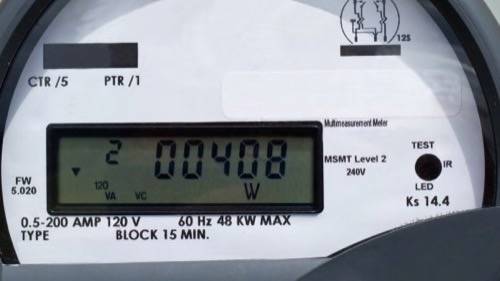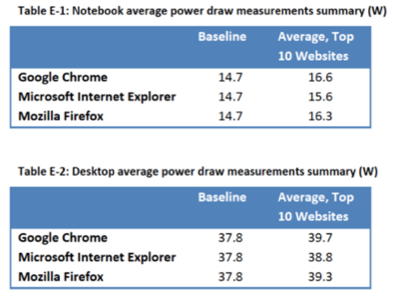
Some of the funniest bits in tech media usually start with the introduction: “from a Microsoft-commissioned study,” and a new whitepaper from the Fraunhofer Center for Sustainable Energy Systems doesn’t disappoint. So, here it comes: Results from a Microsoft-commissioned study reveal Internet Explorer is the least-energy-using browser on the market.
Yes, a big shocker there, considering the source. But the Fraunhofer study (PDF) asserts with a straight face that IE out-greens the Google Chrome and Mozilla Firefox browsers.

It’s not by much, but when notebook and desktop power consumption was compared between an at-rest baseline and use while visiting the “top 10 U.S. websites,” Internet Explorer appeared to use less power – up to a full 1 Watt less on notebooks than Google Chrome and .9 W less then Chrome on desktop PCs.
Over time, this might add up, but not by much. Fraunhofer’s calculations indicate that on notebooks using Internet Explorer will save the U.S. 300 gigawatt hours a year over using Chrome and 200 gigawatt hours over browsing with Firefox. Put in perspective, that’s about as much energy as Greenland and Belize consume annually, respectively.
On the desktop, the difference is even less: Chrome pulls in an estimated 200 gigawatt hours more than IE, and Firefox consumes 100 gigawatt hours more. So that’s a Belize and Benin’s worth of power, respectively.
Still, there are caveats that are impossible to ignore: the machines used by the Fraunhofer Center were provided by Microsoft, everything was installed on Windows 8 and it is not especially clear what the usage patterns were during the testing periods for each browser.
It is quite possible this test wasn’t rigged, as some might be tempted to suggest. Microsoft and all the other tech companies commission studies like this all the time. And for every study we see that demonstrate a positive result for the commissioner of the study, there are a lot more studies that never see the light of day because they don’t show such positive results.
Any savings in power is important, but consumers can individually save far more energy with better usage practices and an operating system configuration that aggressively works to consume less energy.
Lead image courtesy of Shutterstock.
















